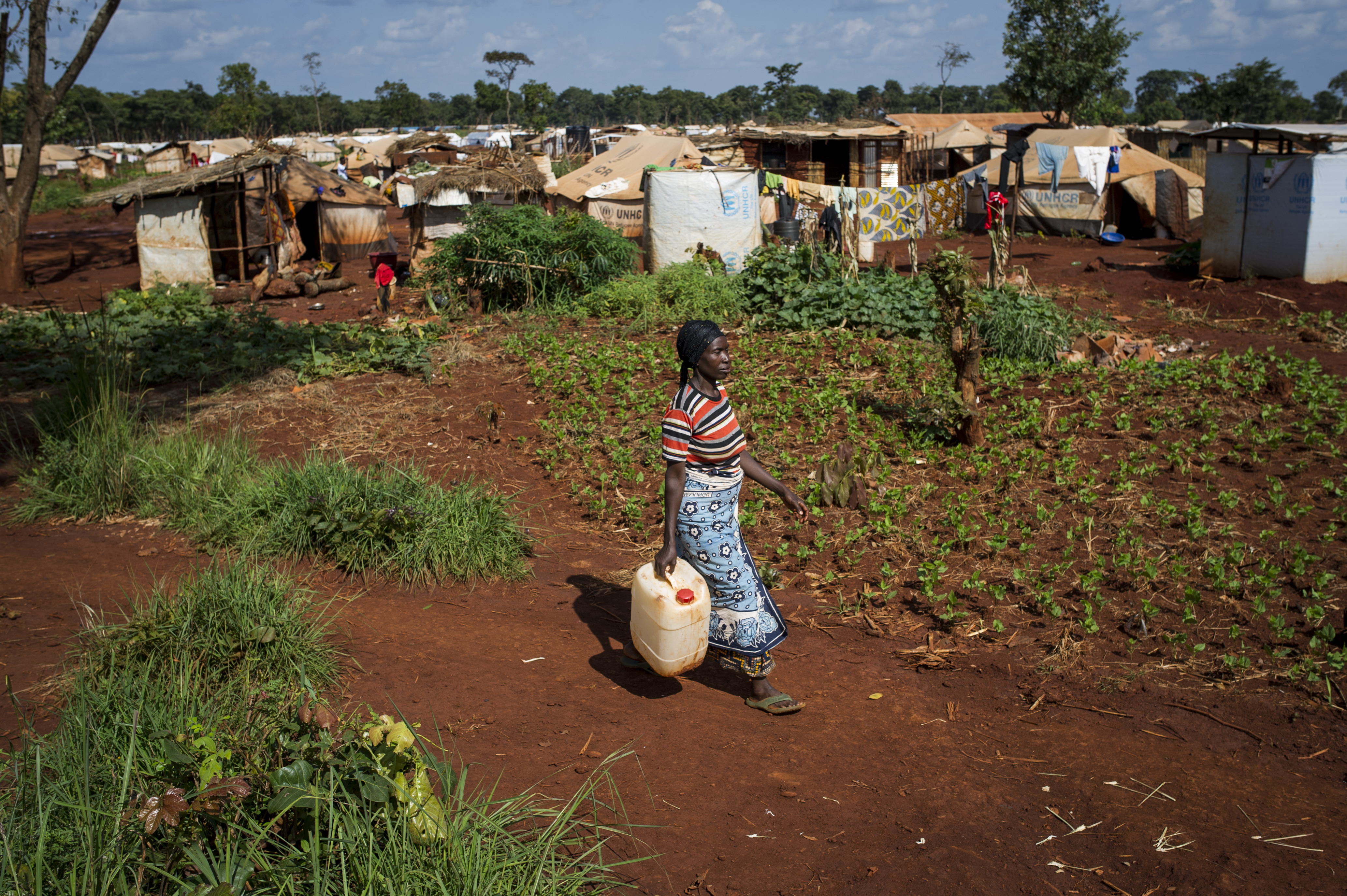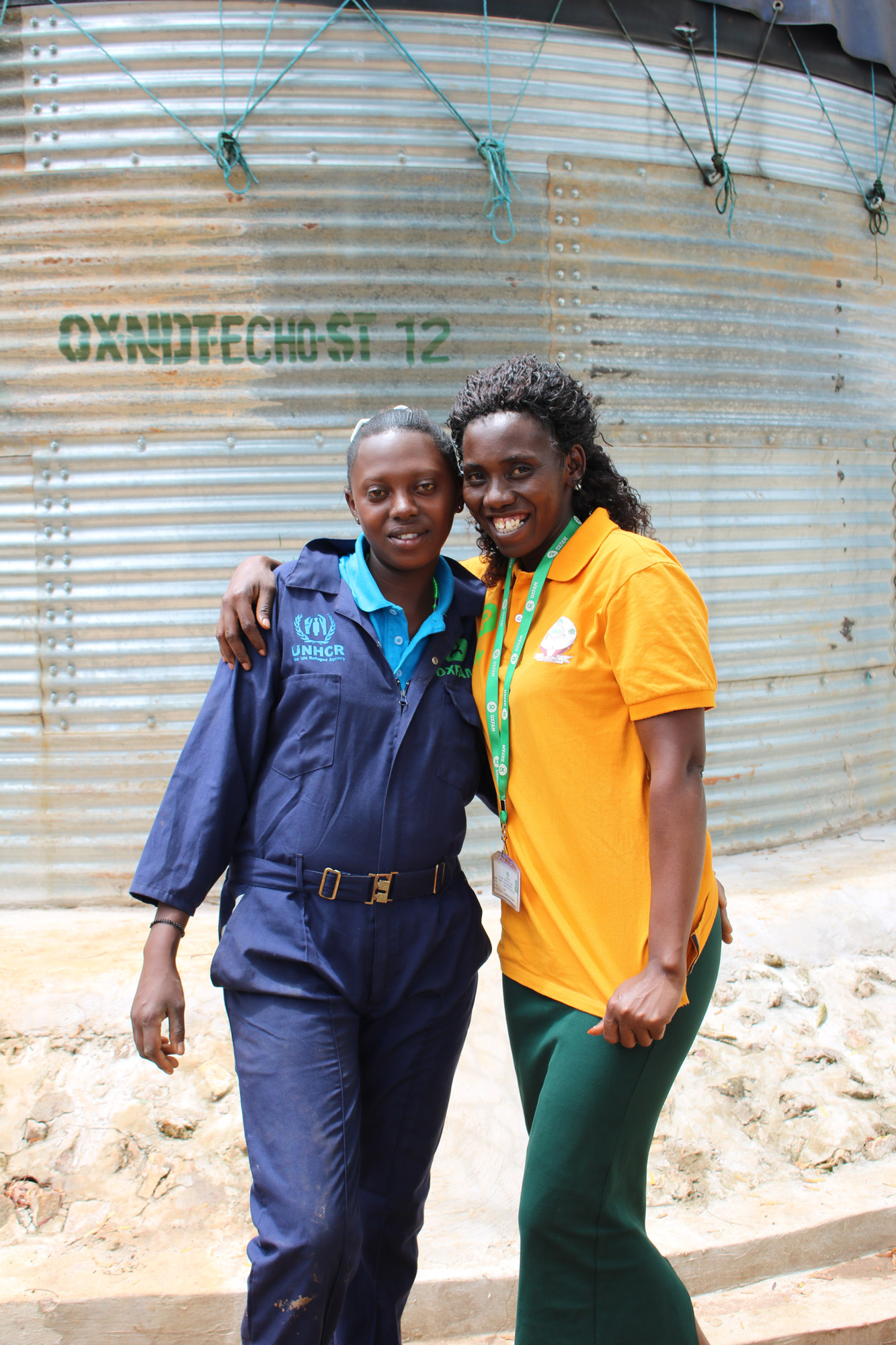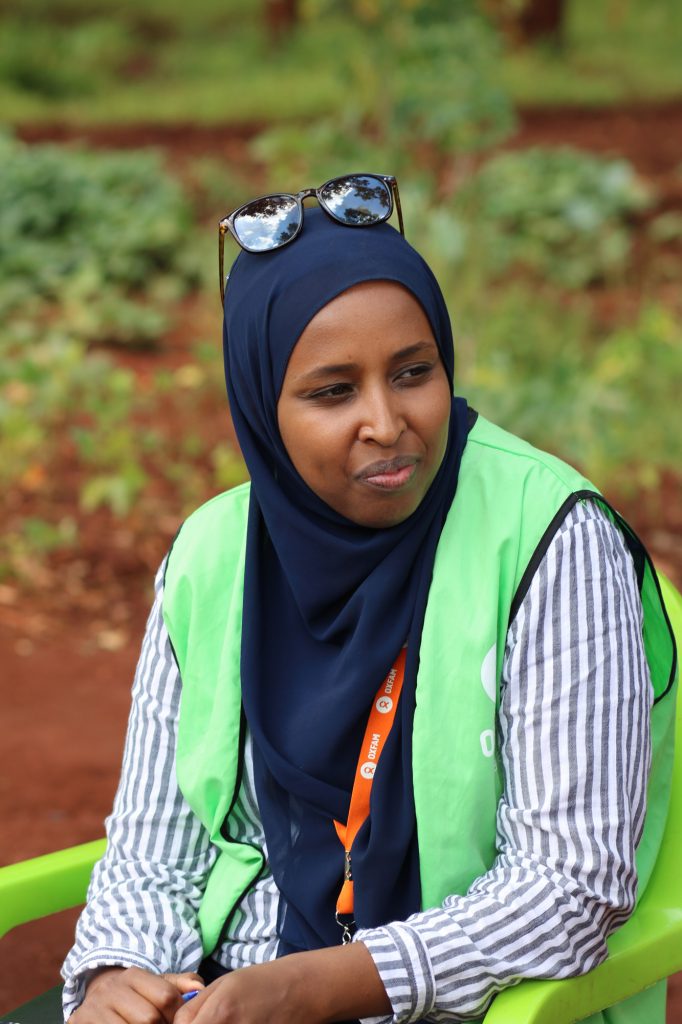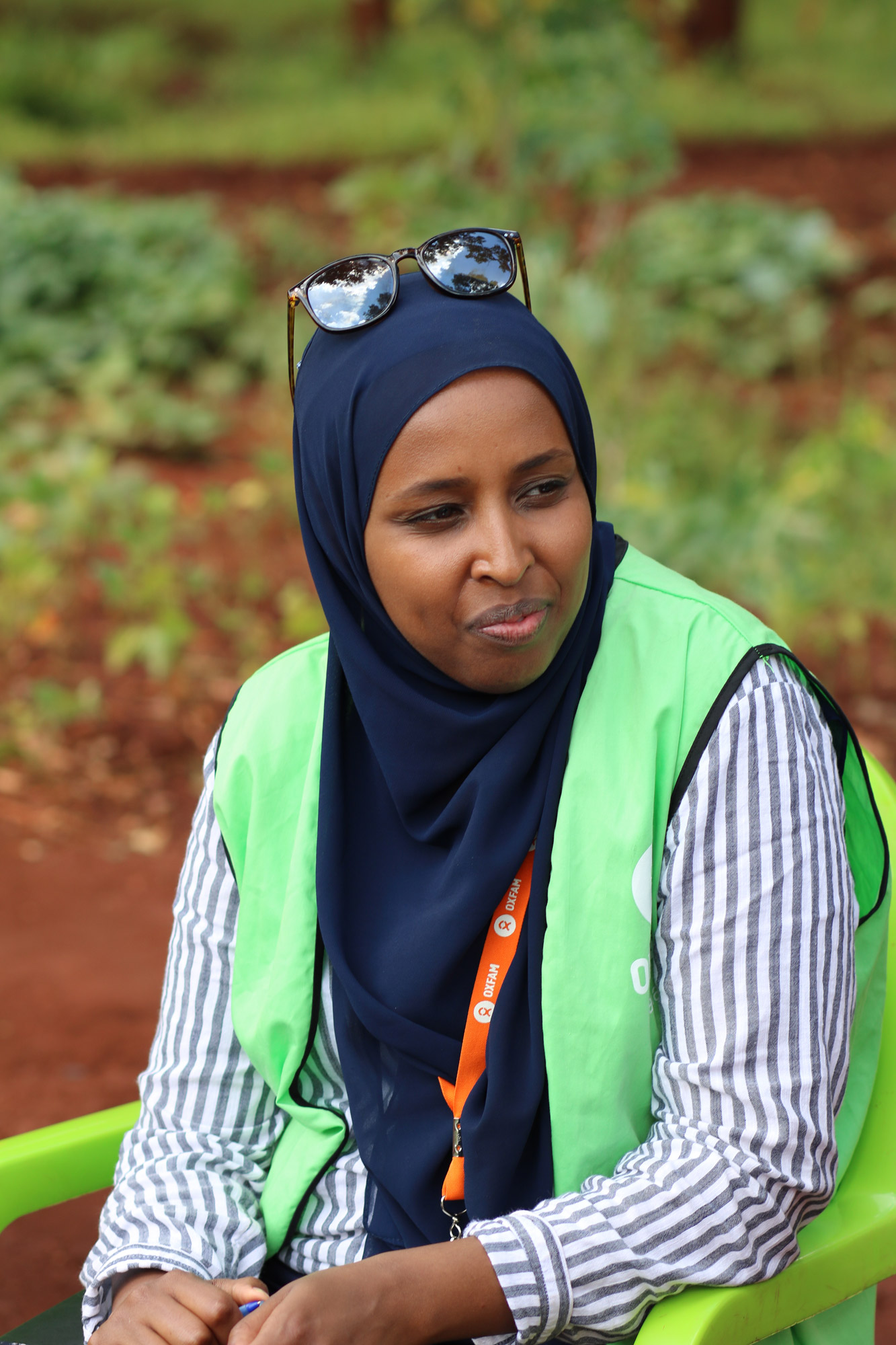Humanitarians on the frontline of the Burundi refugee crisis in Tanzania
Humanitarian workers are the backbone of life-saving humanitarian responses. Though the role of a humanitarian worker is straightforward — providing life-saving assistance and long-term rehabilitation to communities affected by humanitarian disasters — the situations they operate in are far from it. From natural disasters like earthquakes, hurricanes and cyclones, to humanitarian emergencies caused by war and drawn-out conflicts, working as a humanitarian requires a special set of skills and a deep well of fortitude.
From 2018 to 2019, Oxfam provided 19.5 million people with life-saving assistance. This is a huge number, but behind it are real people – each one caught up in a crisis marked by a myriad of hardships, including extreme food insecurity, displacement, political violence and outbreaks of deadly disease. Also behind this number are thousands of humanitarians, working hard on a daily basis to provide life-saving assistance.
World Humanitarian Day is held every year to pay tribute to aid workers who risk their lives in humanitarian service around the world. Here, we profile some of Oxfam’s inspiring humanitarians working in Burundian refugee camps in Tanzania, who are delivering life-saving assistance, providing support to refugees to live a life of dignity and promoting women’s rights.

What led to this refugee crisis?
Burundi is one of the poorest countries in the world and after more than a decade of war, the country is in a constant state of instability.
The combination of an unstable political situation and election tensions in 2015 led to weeks of violent protests, which badly affected the economy and left the most vulnerable people in society in an even worse situation than before. Tens of thousands of Burundians left their homes in fear of the violence and fled to neighbouring countries, particularly Tanzania and Rwanda.
In May 2015, Oxfam started providing assistance in Kagunga and the Nyarugusu camp in response to a cholera outbreak. Since then, Oxfam has been working to provide refugees with clean water, sanitation, hygiene kits, emergency food security, livelihood training and protection.
What is the current situation?
Tanzania is currently hosting over 186,000 Burundians in three camps, Mtendeli (34,489), Nyarugusu (65,641) and Nduta(86,026). According to UNHCR, the Burundian refugee crisis is currently the lowest funded of any refugee crisis globally. In 2018, agencies received just 33 percent of the required $516 million (CAD) requested to support Burundian refugees. While the worst of the violence in Burundi has eased, the situation remains fragile, with an unresolved political situation and continued displacement within and outside the country.
In September 2017, the Tanzanian government initiated a voluntary repatriation of the Burundians and anticipated 180,000 refugees would return by the end of 2018. That did not happen. As of June 30, 2019, only 71,971 refugees have repatriated to Burundi.
The camps remain full and life in the camps for the Burundian refugees requires further support. The interaction between the refugees and the Tanzanian host communities has been cut off by the Tanzanian government, and refugees are not allowed to go outside the camp. Along with these tight restrictions on movement, income-generating activities have been cut along with cash and food transfers to supplement World Food Program rations.
With more than 186,000 Burundian refugees continuing to live in difficult conditions in the camps, the humanitarian work being done is as important as ever. Here are some of the inspiring Oxfam humanitarians on the frontlines of this drawn-out refugee crisis.
Magdalen Nandawula
Position: Head of Humanitarian Programming | Oxfam in Tanzania
Time as a Humanitarian: 20 years
Based in: Dar es Salaam, Tanzania
I came from the development side and when I joined Oxfam, my first humanitarian experience was in Uganda. And I think while it was a new learning for me, the reality is that I find it motivating. You just see the impact you make in people's lives. You're there and then somebody has water, somebody has food, and you see the difference. Somebody is suffering, and you're bringing a smile to that person by just doing that service. You go home at night and say, 'okay, what else can I do?' It keeps you going and motivates you to say I want to help — whether it's looking for resources or a way to do something differently.
The bottom line for me is that the narrative from the [Tanzanian] government is people are returning and what I want to tell people is that this situation is not yet ending. As long as the return to Burundi remains voluntary, and we hope it does, the people are going to stay in the camp for many more years. And as long as they're in the camps, we still need to explore options for supporting them living a dignified life. The basic services — water, health, education, protection — need to continue. Because at the end of the day, you know, life goes on. People have families, mothers are still having babies and they need to be supported to live like human beings.
Lydia Ayikoru
Position: Gender and Protection Officer | Oxfam in Uganda
Time as a Humanitarian: 4 years
Based in: Kampala, Uganda and on secondment to Kigoma, Tanzania
Why do you do this work?
I have a passion to share experiences with different people. For instance, I have a law degree and when people ask why I'm a humanitarian and not practicing law, I say I feel happy if I'm in the community, working with the community, trying to see their needs, trying to share our experiences and knowledge together. Working in the community you can come up with ways to end injustice, poverty and amplify the voices of women within different environments. As a gender and protection officer, I'm able to sit, share and discuss ways we can bring women onboard. How can women make a difference? How can we stand out even more than men and make a change men can't see? I want everyone to be proud of each woman and her strength as it can cause transformative change within society.
What do people need to know about the Burundi refugee situation?
Despite all the struggles that women refugees go through there's still a challenge because of the lack of funding. We want as much as possible to reach out to as many women refugees as possible but because of lack of funding, the number is limited. If we could get more funding and help more women to amplify their voices, we could cause a change.
Myaroca Killio
Position: Gender and Protection Assistant | Oxfam in Tanzania
Time as a Humanitarian: 7 months
Based in: Kigoma, Tanzania
Because I'm a human being and I see people coming from this crisis [in Burundi] and I feel very happy to work with them because it's saving their lives. I'm very interested in working with the refugees in Nduta camp — it's from my heart because we are providing gender and protection, and all protection is a human right. So working with refugees is my part to ensure human rights are being taken into consideration.
For the Burundian refugees, there is an issue of gender-based violence (GBV) happening in the camp as well as the host communities. It's the same challenges — the chances for women to thrive are still low, decision-making for women is still low and we have a big gap on the issues of GBV, women's empowerment and women's leadership. So we need more support to ensure the gender concepts are being mainstreamed into the host communities and the refugees — to ensure that women can participate and make their own decisions.

Francis Shanty Odokorach
Position: Country Director | Oxfam in Tanzania
Time as a Humanitarian: 13 years
Based in: Dar es Salaam, Tanzania
I come from the northern part of Uganda and from 1986 to the early 2000s, we had conflict that was caused by the Lord's Resistance Army (LRA). I grew up during that time and our homes were destroyed. Everything was destroyed, our lives were shattered and we were displaced from our home. When I was a little boy growing up I had to go with my mother to line up for food being distributed by agencies and I thought that I need to do something about the world. This is where my story began.
Also, I'm a feminist. I have a long history in the work of women empowerment that again dates back to my childhood. I come from a polygamist family. My father had so many wives and my mother was one of them. Later in her life, she became a very strong leader and women's rights activist in our area. She founded organizations and she was among the few women who were ever able to stand up and talk about women's rights. This was in the 90s when it was difficult to talk about women's rights. I saw the justification for her to stand up and push and I said to myself if I have anything to give back to the world then I have got to push for equality, for inclusion, fight issues of injustice that are very well entrenched in our customs.
As a child I experienced a lot of difficult conflicts, which is what inspired me to do this work and I don't think I will stop anytime soon because unfortunately there are a lot of emergencies still coming up in the world.
Canada plays a very important role in leading and putting the woman's agenda on the table — and Canada will need to continue to provide resources that target women both in terms of those displaced and those in the host community.


Fatuma Shideh
Position: Humanitarian Program Officer | Oxfam in Canada
Time as a Humanitarian: 9 years
Based in: Ottawa, Canada
I think in part because of my background — being Somali and coming from a place that continues to experience conflict and displacement — I wanted to try to be in a profession that makes some type of positive change. By supporting people and trying to counter situations and circumstances that oppress them. Depending on where you are, the experiences can be intense. Humanitarian work is about supporting people that are in the most need and not able to cope with what's happening – whether it's a natural disaster or a community that's persecuted and discriminated against for who they are. The level of need, it's immense in a lot of situations. But working on the ground, seeing it firsthand and working alongside affected people and communities… even having family that are not in the best situation [in Somalia]… you still see them finding a way to make it work. They know their own solutions. People know what they need to help them get to where they want to be. There's strength and resilience, which is beautiful.
The situations I've worked in have been more with people being displaced in their own countries. Those situations are very similar to a refugee camp but there are so many more layers for refugees because they're not in their own country.
People had to cross a border and in a lot of ways that journey is really unsafe, which I think clearly shows the fear the Burundians had that they had to leave and drop everything to come to a refugee camp. You're seeing the difficult circumstances people face in the camp. They're trying to settle in and make some form of life and start regular routines, which I think every human needs in life.
And while there are services in the camp like schools, and Oxfam is providing water, sanitation and hygiene kits, the refugees are also very restricted. They can't leave the camp or make a business, which forces people to be in a very idle situation and that is never good.

